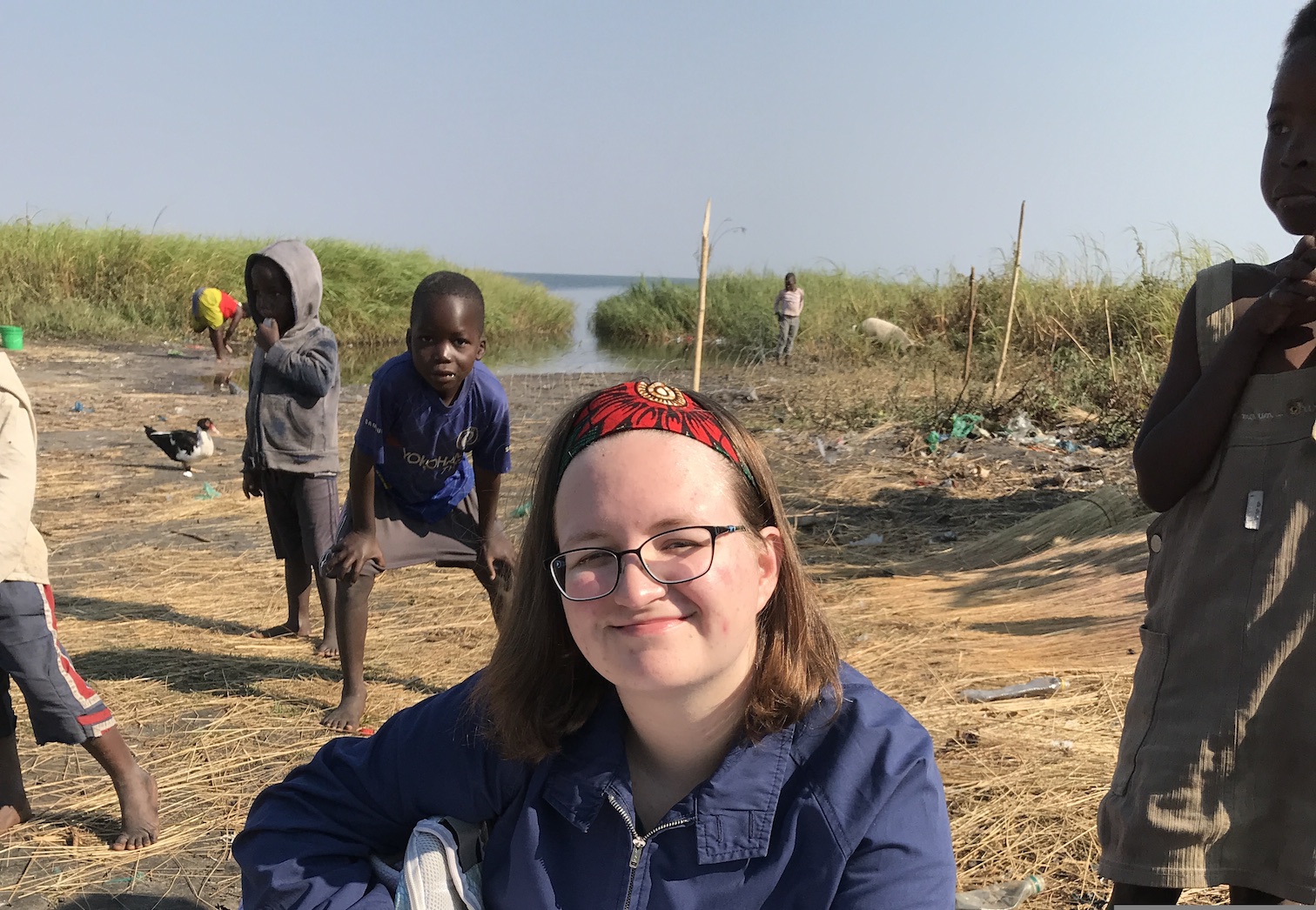
May 15, 2019
Kristen Dechert
Photo by Hannah Irvin
Laura Ingouf, a student at Mississippi State University (MSU) has received a $4,000 stipend to join a team of researchers in Zambia this summer and assist with data analyses at MSU.
An undergraduate intern at the university’s Social Science Research Center (SSRC) and MSU Presidential Scholar, Ingouf will assist with a Quick Start project of the Feed the Future Innovation Lab for Fish (Fish Innovation Lab), also at Mississippi State.
“I’m excited about the work I will be doing in Zambia and at MSU this summer because it will provide me with experience conducting my first anthropological field-based research,” said Ingouf. “This will give me the opportunity for hands-on learning that will prepare me for future fieldwork.”
The project, titled “Fish4Zambia: Assessing Facilitators and Barriers to Aquaculture and Fish Consumption in Zambia,” aims to increase the quality and quantity of fish benefitting nutrition and food security in Zambia, especially for women and for children in the critical first 1,000 days of life. The project is led by Kathleen Ragsdale of the SSRC, who serves as US principal investigator (PI) and Steven Cole of WorldFish, who serves as Zambia PI. Additional researchers on the project include US co-PIs Mary Read-Wahidi of the SSRC and Elin Torrell of the University of Rhode Island and Zambia co-PI Pamela Marina of the University of Zambia.
“Although Laura only began work with us as an SSRC intern in February, she is the kind of student that hits the ground running and operates at a level far above what one would expect from an undergraduate,” said Ragsdale. “One of the benefits she will bring to the project is producing blogs over the two weeks of fieldwork that will be enlightening to wide audiences about the importance of research for development to address global food security and engage youth in generating livelihoods to help sustain themselves and their families.”
Ingouf will travel with the team to Zambia for two weeks in June to assist with training workshops and with implementing surveys, focus groups, and in-depth interviews. Upon returning, she will work the remainder of the summer at the SSRC assisting with data analyses to help the PIs and co-PIs with reaching project goals.
Ingouf stated her interest in the Fish Innovation Lab project stemmed from its focus on international development and food security and how these are influenced by cultural and social norms.
“I think the work of listening to the people affected so that we can tailor our efforts to benefit them is extremely important, and I’m glad to participate in that effort by helping to conduct focus groups and interviews in Zambia,” she added.
Funded by the United States Agency for International Development (USAID) and led by MSU, the Fish Innovation Lab supports sustainable and resilient aquaculture and fisheries systems by initiating and supporting research to enhance food safety and nutrition, improve fish production systems, and increase trade and domestic market opportunities to ultimately improve the nutrition and livelihoods of households and small-scale producers in developing countries.
“My hope is that the Fish Innovation Lab will provide opportunities for students to engage in international development research, and Laura is a great success story,” said Mark Lawrence, director of the lab.
For more information about the Feed the Future Innovation Lab for Fish, please visit fishinnovationlab.msstate.edu.
